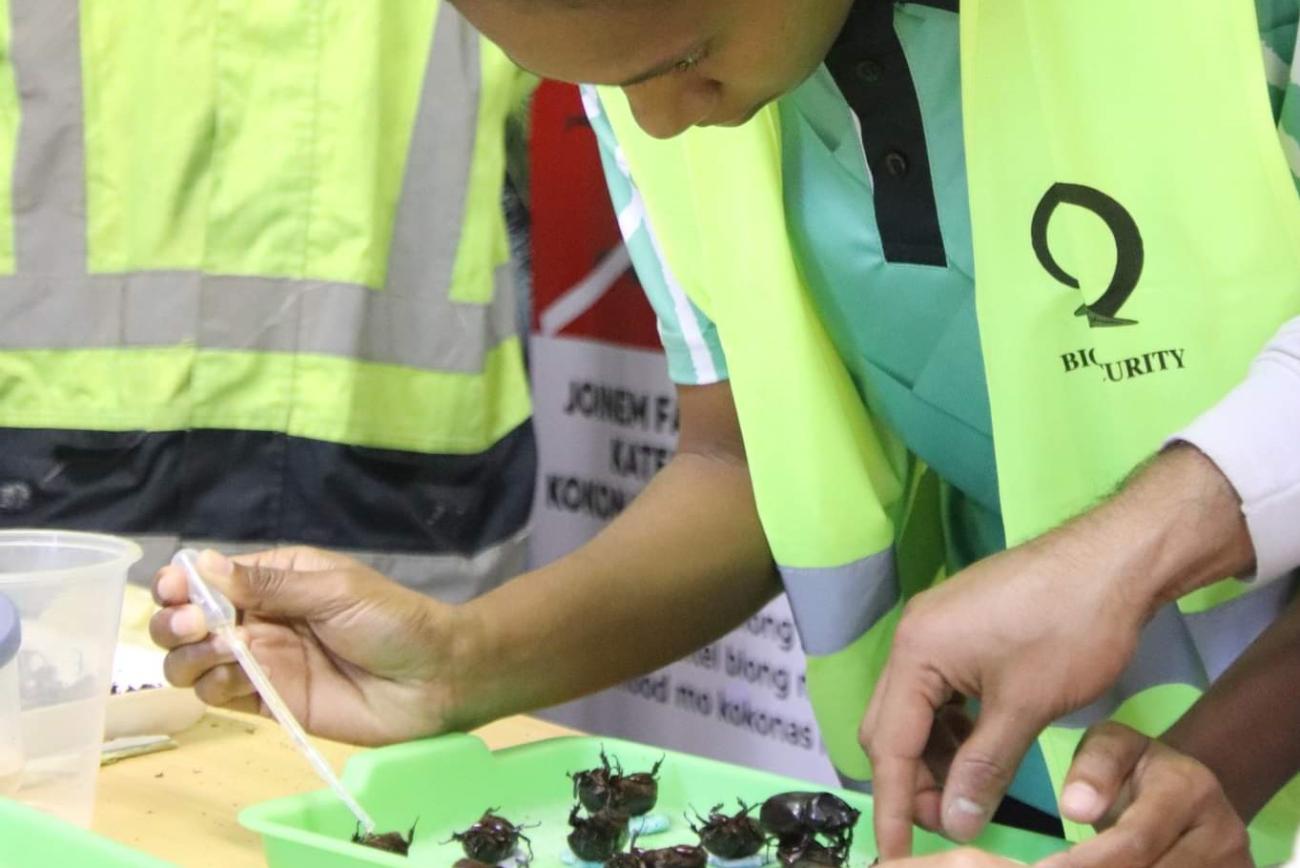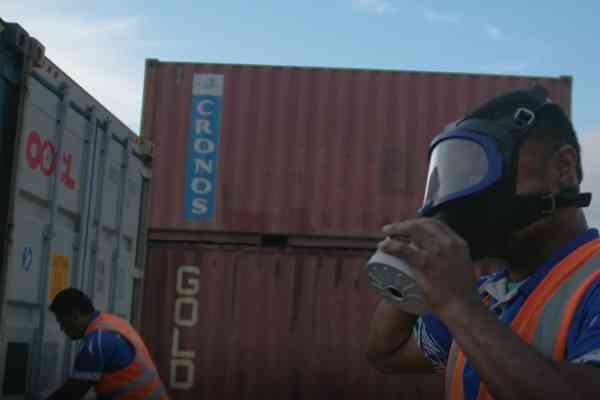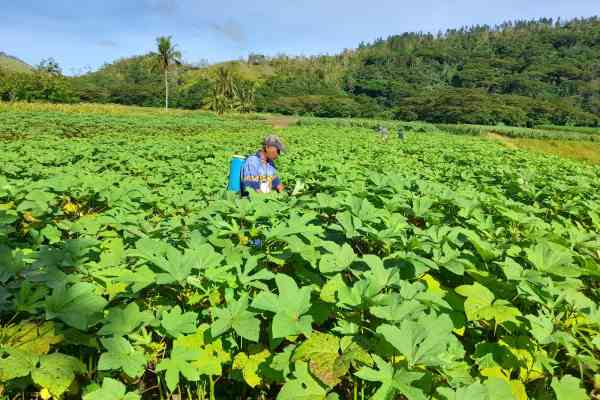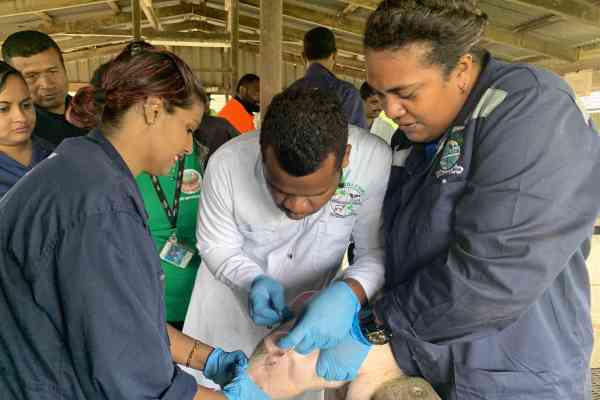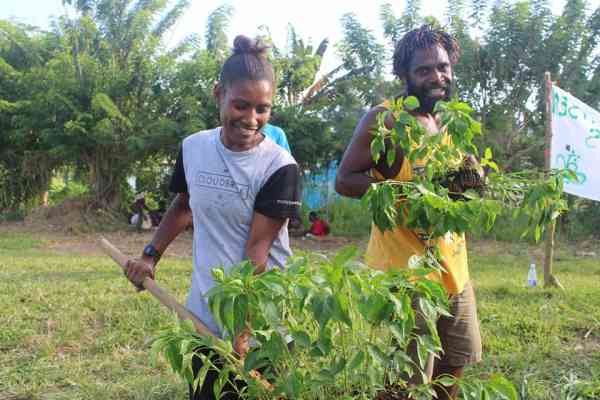Photo: Vanuatu Coconut Rhinoceros Beetle (CRB) biosecurity inspection
In their first face-to-face meeting in three years, biosecurity and plant quarantine experts from across the Pacific came together in Nadi, Fiji, this week to find solutions for preventing the spread of plant pests and diseases and mitigating trade-related biosecurity risks in the region.
The Draft International Standards for Phytosanitary Measures (ISPMs) Regional Workshop took place as an unsettling increase in pests and diseases in the Pacific threatened to negatively impact regional trade and lead to a rise in food insecurity. The gathering was funded by the European Union (EU) under the Safe Agricultural Trade Facilitation through Economic Integration in the Pacific (SAFE Pacific) project and the Food and Agriculture Organisation (FAO) of the United Nations.
As the only vehicle that ensures Pacific voices, concerns and inputs are captured in drafting international standards, the forum serves as a critical component to safe trade and eliminating plant diseases and pests. Biosecurity Authority of Fiji Chairman Mr. Naushad Ali said the COVID-19 pandemic adversely affected biosecurity activities. In addition, as international travel and trade increased after lockdowns, more vigilance is needed to prevent new pest incursions and outbreaks.
"Food security is threatened by an alarming increase in the number of outbreaks of transboundary pests and diseases of plants. This reinforces the importance of international cooperation, and this is why this three-day workshop is important for our respective countries and the region as a whole," said Ali during his opening address.
The Pacific region is at high risk of the devastating impacts of pests such as the Fall Army Worm and the recent introduction of the Coconut Rhinoceros Beetle in Vanuatu, the Solomon Islands and parts of Papua New Guinea. With new resistant strains of pests emerging, strengthened biosecurity and plant health efforts have become critical, as incursions can take millions of dollars to control.
The Pacific Community's (SPC) Land Resources Division (LRD) Market for Livelihoods Programme Leader Dr. Viliami Kami said that it was essential to understand and recognise the unique context and calamities facing the Pacific region, which is prone to natural disasters and is on the frontlines of the climate change crisis.
"For many of us at this meeting, we are aware of how this influences the risk of pests and invasive species and the need to be extra vigilant at our borders. This meeting provides the opportunity to engage Pacific experts so that the draft ISPMs are sound and effective."
The three-day gathering highlights the pivotal role of the IPPC (International Plant Protection Convention), especially the Pacific Plant Protection Organization (PPPO) housed at SPC's LRD, in including Pacific conditions and priorities when reviewing international biosecurity standards.
"The world has changed, and as signatories to the PPPO and IPPC, we as regulatory authorities of our respective countries have an immense responsibility of ensuring that we show commitment so that when international standards are adopted, we can hold our heads high knowing that they do encompass our country, sub-region and region conditions and realities," said PPPO Vice Chair Mr. Nacanieli Waqa of New Zealand Ministry for Primary Industries.
The meeting brought together over 25 biosecurity and plant health experts from the region, including representatives from the Food and Agriculture Organization (FAO) Sub-Regional Office and IPPC Secretariat.
Immediately following, the PPPO Executive Committee will look at follow-up steps through a discussion on the organisation's strategic plan and sustainable implementation framework.
Media contact(s):
Dr Visoni Timote: [email protected]
Riten Gosai: [email protected]
Communications- Maryann Lockington: [email protected]
For general media enquiries, please contact [email protected]
About SPC:
The Pacific Community has been supporting sustainable development in the Pacific, through science, knowledge and innovation since 1947. It is the principal intergovernmental organisation in the region, owned and governed by its 27 member countries and territories. www.spc.int
Follow SPC News | Facebook | Twitter | LinkedIn | Instagram | YouTube and subscribe to SPC's Newsletter
